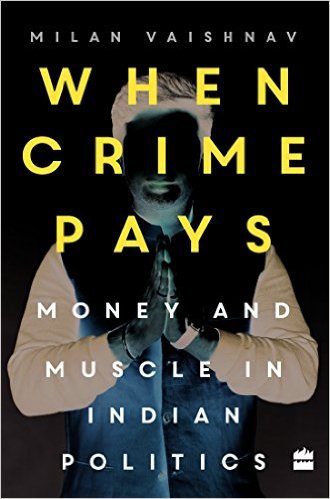At a time when Bahubali of a cinematic kind has become the buzz word in India, there is another timely intervention on the topic of Bahubali, but of a political kind. Milan Vaishnav’s new book titled When Crime Pays: Money and Muscle in Indian Politics, claims to be the first comprehensive study of the nexus between crime and democracy in India. The book explores the importance, capabilities and interestingly enough the winnability of goondas, musclemen, criminals or as they are also sometimes called, Bahubalis, in Indian politics. The puzzle of rampant success and gradual entrenchment of politicians with criminal backgrounds in Indian politics has been a frequently discussed one in both academic and layperson discussions.
How and why do politicians with criminal backgrounds become relevant in the world’s largest democracy? Why do criminals enter politics in India? Why do parties choose to nominate candidates with criminal backgrounds? And why do voters support candidates with serious criminal charges against them? These are some of the most pertinent questions shaping up the debates on the quality of democracy in India. Vaishnav’s book throws light on these questions and through his rigorous analysis using both qualitative and quantitative methods, provides some definite answers. Let us begin by examining some numbers to understand the extent of the entrenchment of crime and politics in India.

